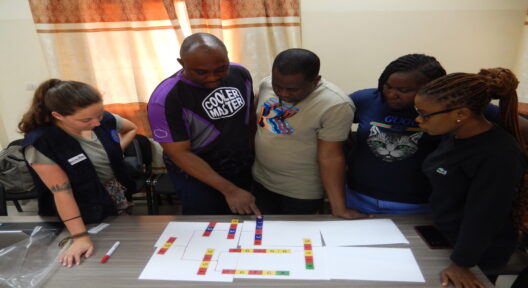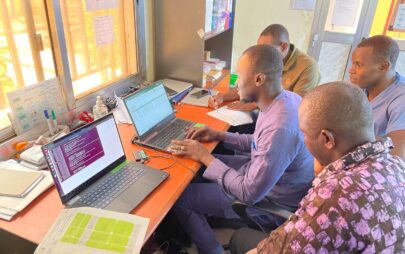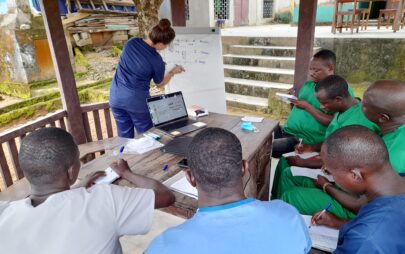Celesta
Genomic Surveillance of viral Haemorrhagic Fevers and other Outbreak-prone viral Diseases in sub-Saharan Africa

Context
The COVID-19 pandemic and various other viral infectious disease outbreaks in recent years highlight the need for strong laboratory preparedness and capacities to ensure an effective national response to public health emergencies. The World Health Assembly has therefore made genomic surveillance a key priority because this technology offers a unique opportunity to identify, track, monitor and characterise viral pathogens in a timely manner, which results in improved public health decision-making. During the COVID-19 pandemic, efforts were made to establish SARS-CoV-2-specific sequencing capacities in sub-Saharan Africa. It is, however, crucial to expand such capacities to cover a broad range of viral pathogens so that these countries are well-prepared to deal with infectious disease threats. Collaborating with its long-term partners, the project aims to improve genomic surveillance capacities for viral haemorrhagic fevers (VHFs) and other outbreak-prone viral diseases. The project focuses on Nigeria and Guinea and works closely with local laboratory staff. It will not only reinforce the capacities of national surveillance laboratories, but also provide a global solution enabling these countries to prepare for and rapidly respond to future outbreaks.
Objective
Establishing sequencing capacity for life-threatening viral pathogens, where needed, to improve pathogen identification and outbreak preparedness and response.
In Cooperation with
- Irrua Specialist Teaching Hospital (ISTH), Nigeria
- Centre de Recherches en Virologie – Laboratoire des Fièvres Hémorragiques Virales de Guinée (LFHVG), Guinea
- Université Gamal Abdel Nasser (UGANC), Guinea
- Laboratoire des Fièvres Hémorragiques Virales de Gueckédou (LFHV Gueckédou), Guinea
- Laboratoire des Fièvres Hémorragiques Virales, N’Zérékoré regional hospital (HRNZE), Guinea
- Evolutionary and Computational Virology, Katholieke Universiteit Leuven (KU Leuven), Belgium
- Ministries of health (Nigeria and Guinea)
- World Health Organization (WHO), Switzerland
- Global Outbreak Alert and Response Network (GOARN)
Thematic priorities
Facts
Activities
-
Training and competence development
Training of laboratory staff to perform diagnostics, next-generation sequencing, informatics analysis, molecular epidemiology and research.
-
Procurement of goods and infrastructure development
Setting up fixed and mobile genomic surveillance laboratories.
-
Capacity development
Establishing sequencing capacity in three laboratories; supporting the implementation of bioinformatics processing and analysis of sequencing data (hardware and software); introducing quality management systems to ensure delivery of quality genomic sequencing data.

